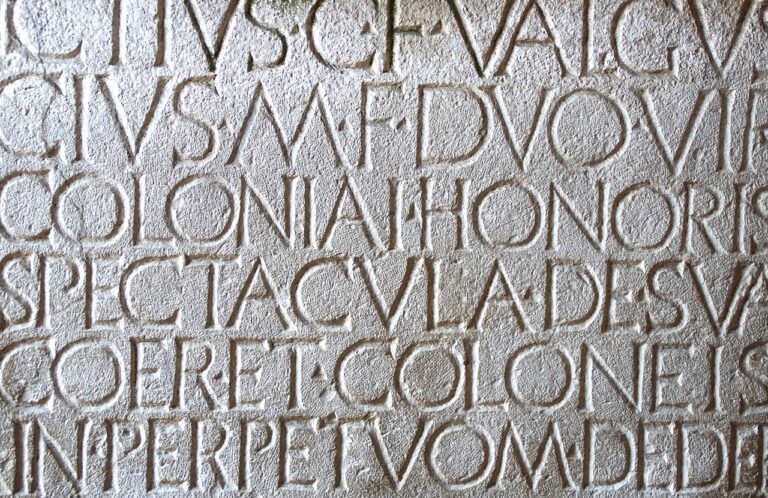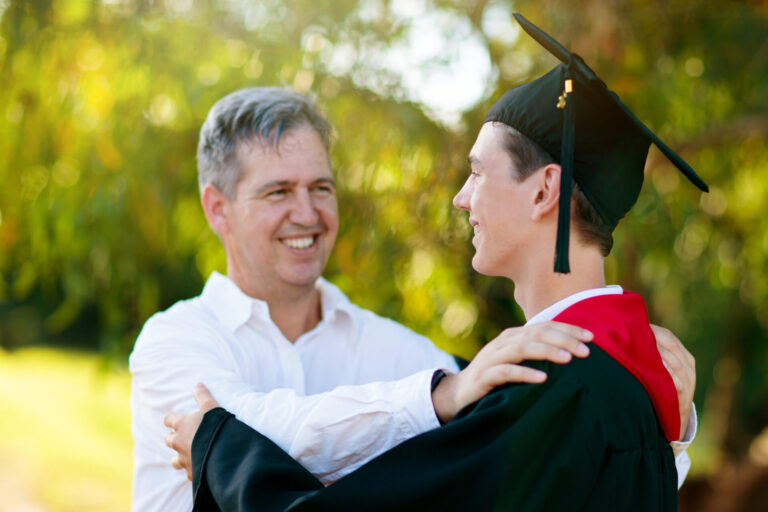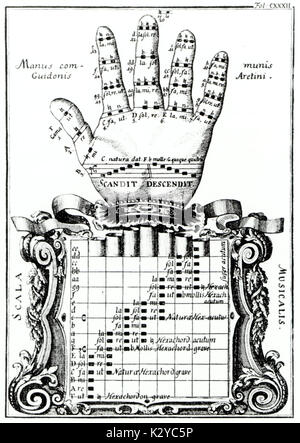How to Read a Book…According to Milton
by Dr. Cole Jeffrey
Guest contributor
Milton’s lesser known political tracts reveal his philosophy of reading
During the 1640s, England was divided by a bitter civil war. Two political factions, the Royalists and the Parliamentarians, fought for control of the government. The Royalists believed power should be controlled by the monarchy, while the Parliamentarians believed power should be concentrated in an elected body of representatives.
John Milton was an ardent republican who supported the Parliamentarians, and he wrote numerous tracts that called for both political revolution and social reform. Apart from establishing his political philosophy, Milton’s political texts are significant because they reveal his philosophy of reading—his beliefs about what we should read, why we should read, and how we should read.
“Of Education”
Milton wrote “Of Education” in 1644 to promote the complete reform of England’s educational system. Here Milton presents his vision of the “best and noblest way of education,” which is heavily influenced by his Christian humanism. Today, most college students believe that the goal of education is to acquire knowledge and skills that will prepare them for a career. Milton would disagree. He believed that the ultimate goal of education is spiritual and moral formation. He sees education as a means for sanctification, the process through which God redeems sinners and restores their fallen natures. He writes:
The end then of learning is to repair the ruins of our first parents [i.e. Adam and Eve] by regaining to know God aright, and out of that knowledge to love him, to imitate him, to be like him, as we may the nearest by possessing our souls of true virtue, which being united to the heavenly grace of faith makes up the highest perfection.
Like the Reformers, Milton believed that Adam and Eve’s rebellion against God fundamentally changed not only their natures, but also the natures of all their descendants. Because of Original Sin, every aspect of human nature and human experience is corrupt. Education is a means through which divine grace can reverse the effects of the Fall, causing us to “regain” what Adam and Eve lost.
Notice the process here—we learn more about God, and this knowledge inspires devotion. The more we love God, the more we are inspired to imitate and obey him. As we obey him, we become truly virtuous. Virtue, for Milton, is a state of being that is produced by knowing, loving, and obeying God. The goal of education is to produce people who possess these three attributes.
Areopagitica
So what role does literature play in this process? How does reading literature help us know, love, and obey God? Milton addresses this question in his tract “Areopagitica,” which is one of the most famous defenses of free speech in Western civilization. Milton wrote this tract in 1644 after the Parliamentarians passed The Ordinance for the Regulating of Printing, which prevented authors from publishing books without a license from the government. It was, essentially, an act of censorship that gave the Puritan-run government the power to determine what books the English people could read—or not read.
Though Milton generally agreed with the Parliamentarians, he firmly opposed censorship. In “Areopagitica,” he argues that a just and virtuous society must have both free speech and a free press. His argument failed to persuade the Parliamentarians to abolish the licensing act, but it had a colossal impact on future generations. Political philosophers like John Locke and John Stuart Mill were heavily influenced by Milton’s defense of free speech, and the tract has been cited in numerous Supreme Court cases involving censorship.
What you think people should read—or not read—depends on your anthropology, your view of human nature. Most proponents of censorship tend to view human beings as passive creatures who are shaped (or misshaped) primarily by external influences. Censors often see human nature as a tabula rasa, a “blank slate” that will be enhanced or degraded by its environment. They obsess, therefore, over controlling that environment. If you control the environment, you determine what kind of people it will produce.
Milton takes the opposite view in “Areopagitica.” He reminds his Puritan readers that we are fallen creatures living in a fallen world, and therefore “we bring not innocence into the world, [but] impurity much rather.” There can be no perfect people or perfect environments in a postlapsarian cosmos. Preventing people from reading immoral or dangerous books will not preserve or increase their virtue. But allowing them to read those books might make them good, Milton argues. How can that be?
Milton believes that fallen people lack an essential virtue—the virtue of discernment. Drawing from both the Bible and classical mythology, Milton explains his vision of the human condition:
Good and evil we know in the field of this world grow up together almost inseparably; and the knowledge of good is so involved and interwoven with the knowledge of evil, and in so many cunning resemblances hardly to be discerned, that those confused seeds which were imposed on Psyche as an incessant labor to cull out, and sort asunder, were not more intermixed.
Milton is alluding here to Jesus’s parable of the wheat and tares (Matt. 13:24-34). In this parable, a farmer (God) sows wheat in his field during the day, but his enemy (Satan) sows tares in the same field that evening. The farmer’s workers want to pull the tares out of the field, but they cannot since both wheat and tares look virtually identical when they are growing.
This story resembles the myth of Psyche, who was punished by the goddess Aphrodite. Her punishment required her to sort grains of wheat, barley, beans, and poppy seeds that were mixed together—another impossible task since these grains and seeds look identical. This is the human predicament: we are fallen people living in a fallen world. No matter where we go or what we do, we will encounter “fields” full of good things and bad things, and we lack the ability to tell the difference between them. Truth and falsity, good and evil, beauty and ugliness—these elements are thoroughly entangled in human experience. Therefore, if we aspire to know what is ultimately true, good, and beautiful, we will inevitably be exposed to their counterfeits. We do not just find these “fields” in the world around us; we find them in our own hearts and minds.
According to Milton, the goal of education is to “repair the ruins” of human nature, to produce Christians who (1) know what is right and best, and (2) choose what is right and best, (3) because they love what is right and best. This is what it means to be a discerning person. Milton argues, though, that you cannot become a discerning person if you are never given the opportunity to discern. If you are never exposed to “tares,” you will never learn to recognize the differences between “wheat” and “tares.” You will not even know for sure that you actually love “wheat” more than “tares.” Virtue, therefore, requires bold engagement with sin, not cowardly flight from it:
He that can apprehend and consider vice with all her baits and seeming pleasures, and yet abstain, and yet distinguish, and yet prefer that which is truly better, he is the true wayfaring Christian. I cannot praise a fugitive and cloistered virtue, unexercised & unbreathed, that never sallies out and sees her adversary, but slinks out of the race, where that immortal garland is to be run for, not without dust and heat.
Milton argues that sanctification—the process of becoming holy—is not achieved by isolating ourselves from a fallen world or ignoring our own fallen nature. Isolation from sin is impossible because we are sinful creatures who live in a world where everything is tainted by sin. Sanctification is not protecting an imaginary purity; instead, it is a call to recognize and reject sin wherever we find it—including ourselves. Milton emphasizes the importance of what he calls “trials,” situations in which we are exposed to good and evil and given the opportunity to choose between them:
That which purifies us is trial, and trial is by what is contrary. That virtue therefore which is but a youngling in the contemplation of evil, and knows not the utmost that vice promises to her followers, and rejects it, is but a blank virtue, not a pure; her whiteness is but an excremental whiteness.
His theology here is based on the Book of James, in which the Apostle declares, “Blessed is the man who remains steadfast under trial, for when he has stood the test he will receive the crown of life, which God has promised to those who love him” (James 1:12). James makes it clear that when we face a trial, we should never assume that God is tempting us to sin. God is not evil, so He would never tempt us. When we experience temptation, it is because the situation has revealed the evil in our own fallen natures. “Each person is tempted when he is lured and enticed by his own desire,” James writes (1:14). Temptations and trials are certainly dangerous because they create opportunities where we can make wrong choices, but if we are not given the opportunity to make a choice at all, we will never grow spiritually or morally. Trials create opportunities to sin, but they also offer us a chance to recognize the sin that makes temptations so tempting and repent from it. If we do so, we become discerning Christians.
It needs to be stressed here that Milton is not encouraging Christians to be reckless or foolish. Since we are fallen people, we should not put ourselves in tempting or trying situations in hopes this will somehow magically sanctify us. Trials will inevitably find us; we do not need to seek them out. What we need to do, therefore, is prepare for them. According to Milton, reading literature is one of the best ways we can prepare our hearts and minds for real-world engagement with sin. Literature allows us, imaginatively, to enter fictional universes that resemble our own universe. In much the same way that flight simulators prepare pilots for real flights and boot camp prepares soldiers for real battles, literature prepares us for real world challenges.
Milton illustrates this idea with an example from Edmund Spenser’s epic poem The Faerie Queene. In the poem, the knight Guyon (who represents the virtue of temperance) enters the Bower of Bliss, a magical garden in which people are tempted by every worldly pleasure. Guyon is tempted to abandon his quest and remain in the Bower, but he is a discerning Christian—he recognizes that these temptations will ultimately lead to misery and self-destruction. He resists the temptations he finds in the Bower and, in doing so, passes his trial.
Milton believes that we, as readers, enter a “bower” every time we read a book. We enter a space where an author presents his or her vision of what is good, true, and beautiful. We are given the opportunity to observe this space from a relatively safe distance, to analyze it, and then to choose whether to accept it or reject it. For Milton, reasoning correctly means choosing rightly (“Reason is but choosing,” as he writes in Paradise Lost). Every book gives us a choice, and if we learn to make the right choices, we are better prepared to face the emotional and ethical dilemmas we will encounter both in ourselves and the world around us.
Because Milton rejects the concept of “blank slate” readers, he does not believe that books—in and of themselves—enhance or degrade readers. It is how the book is read that produces virtue. Good readers will grow even if they read “bad” books because they will recognize the errors in the books and reject them, thus growing in both discernment and devotion. Bad readers, on the other hand, can be corrupted even by reading “good” books because they lack the ability to interpret rightly. Ironically, good readers are always aware of their own propensity for error and their vulnerability to temptation. They constantly evaluate themselves as they respond to the text, and this self-awareness guides them safely through potentially dangerous books. Bad readers, on the other hand, are convinced that they interpret rightly, and this self-ignorance will inevitably mislead them.
Ironically, good readers are always aware of their own propensity for error and their vulnerability to temptation. They constantly evaluate themselves as they respond to the text, and this self-awareness guides them safely through potentially dangerous books. Bad readers, on the other hand, are convinced that they interpret rightly, and this self-ignorance will inevitably mislead them.
Paradise Lost and Paradise Regained
We find a clear example of this in Paradise Regained, Milton’s poem about the temptation of Christ in the wilderness, which he envisions as a dialogue between Jesus and Satan. Satan praises pagan philosophers and equates their writings to sacred scripture. Jesus refutes Satan’s claim by pointing out that even though pagan philosophers certainly understood some truths about the world, they did not understand themselves. They lacked—or rejected—the divine light that illuminates human nature.
Those who read their works without this light will find little value. A reader who “brings not / A spirit and judgment equal or superior [to the text will become]… / Uncertain and unsettl’d” and “Deep verst in books and shallow in himself,” Jesus says. These shallow readers can never truly benefit from what they read because they are “ignorant of themselves,” of “God much more,” of “how the world began,” and “how man fell / Degraded by himself.” The spirit of the reader, Jesus declares, is what determines whether a reading experience will be edifying or corrupting.
All Milton’s major writings emphasize this point—self-knowledge depends on a proper understanding of God, human nature, and sin. For Milton, good readers begin a book with an awareness of their sin and their need for sanctification. This awareness makes it possible for God’s grace to work in their hearts and minds, to “repair the ruins.” Slowly but surely, we begin to discern the difference between truth and falsity, goodness and evil, beauty and ugliness as we read.
Right reading for Milton always requires you to confront your own sinful nature. That is why the literary critic Stanley Fish describes Paradise Lost, Milton’s greatest poetical and theological work, as “not so much a teaching but an entangling.” Milton entangles the reader in Adam and Eve’s fall, hoping you will recognize your own fallen nature and how it complicates your ability to perceive and respond rightly to the creation story. In A Preface to Paradise Lost, C.S. Lewis observes that many people who say they hate Milton’s depiction of God in the poem really just mean that they hate God in real life. That is what Milton wants his readers to become aware of—he wants the experience of reading the poem to make you self-aware so you can determine where your real sympathies and allegiances lie.
In Milton’s original drafts of the poem, we find the phrase “cited to examination” written multiple times in the margins. What did Milton want to inspire you to examine? Fish argues (correctly, I think) that Milton wants you to examine yourself. This means that you are the real subject of Paradise Lost. When you read Milton’s poem, reflect on your response and what your response says about your spiritual condition. Milton’s primary goal as a writer is to make you and me aware—aware of our ruined natures and aware of our need for divine reconstruction.
When someone told the composer George Frideric Handel that his Messiah was an “excellent entertainment” for the audience, Handel responded: “My lord, I should be sorry if I only entertained them. I wish to make them better.” Milton shared that goal as a poet. He believed that we read and write for the same reason: to become more like Christ.






